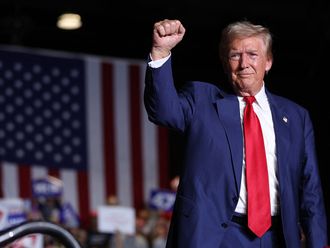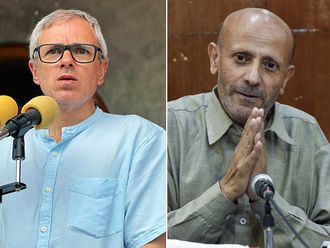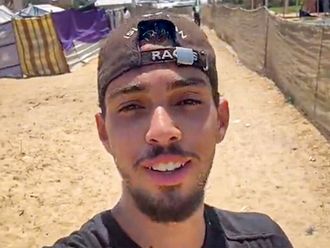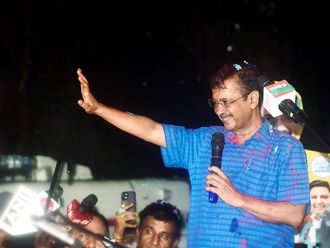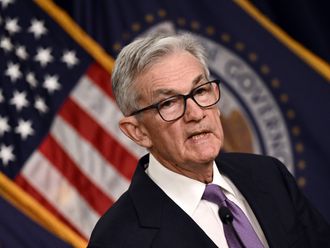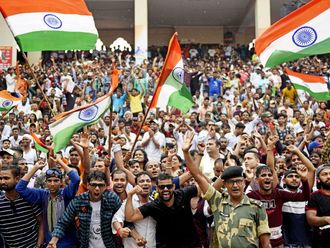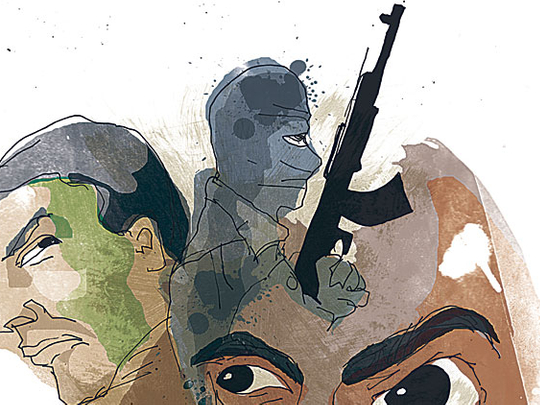
Eleven-year-old Devika has not yet come to terms with what happened to her on November 26, 2008. She was hit by a bullet while waiting at a bus terminus and subsequently lost her right leg. That gunman Ajmal Kasab has been found guilty and sentenced to death is all that matters to her. She does not know the larger perspective. Her father, Natwar Lal, feels the ends of justice have been met, with the only surviving terrorist out of 10 who came from Pakistan to attack Mumbai being brought to book. His reaction, more or less, represents Indian opinion, although some feel that the media-hyped trial served more as catharsis rather than justice.
Many in India have taken the government to task for spending large amounts of money to convict Kasab, who was seen wielding his AK-47 on live TV. New Delhi, however, did well in conducting the case methodically, lest some should criticise it for conducting a kangaroo court trial. Pakistan Foreign Minister Shah Mahmoud Qureshi made an irresponsible remark during an interview to a television network that his government would study the judgment and then make up its mind on Kasab's conviction. This will open a new chapter of suspicion between the two countries.
After Kasab's conviction, New Delhi expects that Hafiz Saeed, the Lashkar-e-Taiba chief, who reportedly planned the Mumbai carnage, will soon be arrested and punished. Islamabad argues that the evidence provided by India is too flimsy to convince a court. Since New Delhi insists that it has provided overwhelming proof of Saeed's involvement, it would be better if all the evidence, including Kasab's confession, were made public so that the people could judge for themselves. Unfortunately, the man who has been arrested for planting the bomb at Times Square in New York is from Karachi. True, he is a naturalised citizen of the US. But people in Pakistan must take the case seriously and come out openly against organisations such as the Lashkar.
The public is right to criticise the exoneration of two Indians involved in the Kasab case. The judge can't be blamed because he found the only witness "unreliable". It is the police who failed to collect tangible evidence against Fahim Ansari of Mumbai and Sahabuddin Ahmad of Bihar. This does not mean that the attack on Mumbai was carried out only by Pakistanis and accomplice David Headley, an American of Pakistani origin.
Indian connection
The Taliban have their followers in India. They are active and it is quite possible that the collaborators in the Mumbai attacks were from among the Indian Taliban.
In fact, India has discovered to its horror that there is a Hindu Taliban network too. They are connected with the Rashtriya Swayamsevak Sangh (RSS) and are said to be responsible for the bomb blasts at Ajmer Dargah (2007), Makkah Masjid at Hyderabad (2007), Malegaon (2008) and Goa (2009). There is a connection to a Bharatiya Janata Party (BJP)-run state government too. Rajasthan Home Minister Shanti Dhariwal has alleged that the state police under former chief minister Vasundhara Raje of the BJP kept the involvement of Hindutva outfits under wraps.
Authoritative sources in New Delhi suspect that Madhya Pradesh, where the BJP government is in power, has become a sanctuary for the Hindu outfits. Hindu Jagran Manch from Indore in the state is considered by the Maharashtra Police to be responsible for the Malegaon blasts that killed 37 Muslims. Top police official Hemant Karkare is alleged to have been eliminated by Hindu extremists, having gathered information on the involvement of Hindu organisations in the attacks across the country. Even the attack on the Samjotha Express (2007) is considered the handiwork of Hindu terrorists.
That Pakistan is itself a victim of terrorism is worrisome for India, which fears that terrorists may pour into the country across the Wagah border. The Taliban have said that India is their "real target". Therefore, Islamabad must take into account the point made by New Delhi that the terrorists come from Pakistan, and do not go from India to Pakistan.
This Indian perception was reportedly the main topic when Prime Minister Manmohan Singh met Prime Minister Yousuf Raza Gilani at Thimphu in Bhutan recently. New Delhi has the assurance of Islamabad that the latter will not allow terrorists to cross the border. The good news is that the foreign secretaries of both countries are expected to pick up where the two prime ministers left off.
Most people in India and Pakistan are prisoners of the past. Their mistrust of each other is deep and entrenched. They tend to see even positive steps in a negative manner. The media makes a mountain out of a molehill. The Bhutan Summit invited all the countries in South Asia to come together. The prime ministers of India and Pakistan took the lead by sitting across the table from each other. Mistrust and past grievances must be left behind.
- Kuldip Nayar is a former Indian high commissioner to the United Kingdom and a former Rajya Sabha member.



